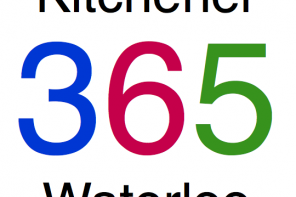The summer market
Plans for the summer? A staycation by the pool? Camping? A road trip to Cleveland, Erie and Pittsburg to take in a few baseball games and do a little shopping? Do you have a cottage? Everyone is doing something this summer which means what they aren’t doing is buying real estate. The Kitchener-Waterloo real estate market typically starts to quickly slow down as soon as the kids get out of school and does not ramp up again until they are back in their classrooms in September. Sure there is some activity. There are deals to be had. But if you are going to take a break, you aren’t going to miss much.
Average asking rents in Canada increased by 6.5% in May. Kitchener Rents up 6.9% year over year for two bedroom.
According to the latest National Rent Report from Rentals.ca and Urbanation, average asking rents in Canada increased by 6.5% in May, which marks the lowest annual increase since December 2021. However, the average rent for all property types on the Rentals.ca Network still rose by 19% over the past two years.
In terms of specific cities, Cambridge ranked 16th out of 35 cities for average monthly rent in May, with a one-bedroom apartment costing $1,953 and a two-bedroom apartment costing $2,350. Year over year, the average monthly rent for a one-bedroom in Cambridge increased by 11%, while for a two-bedroom it decreased by 0.8%.
Kitchener ranked 18th for average monthly rent in May, with a one-bedroom apartment costing $1,913 and a two-bedroom apartment costing $2,370. Year over year, the average monthly rent for a one-bedroom in Kitchener increased by 2.7%, and for a two-bedroom, it increased by 6.9%.
Waterloo was not included in the list, but the average monthly rent in May for a one-bedroom home was $1,643, and for a two-bedroom, it was $2,291.
Several mid-sized markets in Ontario experienced significant annual rent increases in May for condo rentals and apartments. Guelph saw a 19% increase, Hamilton 16%, Kitchener 9%, Gloucester 8%, St. Catharines 8%, Barrie 8%, and London 7%.
The average monthly rent for select Ontario cities in May for condo rentals and apartments were as follows: Kanata at $2,497, Barrie at $2,481, Guelph at $2,471, Cambridge at $2,237, Kitchener at $2,178, Gloucester at $2,141, and Hamilton at $2,110.
Overall, Ontario had the highest increase in average rents in May, with a 12.4% year-over-year increase to $2,409 for purpose-built and condominium apartments.
Key points about Canadian mortgages from Stats Canada
- Canadian mortgage growth is at its weakest point in 20 years due to high interest rates.
- Canadians continue to be one of the most indebted populations globally.
- Mortgage borrowing in Canada hit its lowest level since 2003.
- Household mortgage debt increased by $11.2 billion in the first quarter of the year, the smallest increase in 20 years.
- Higher borrowing costs are limiting households’ access to credit, although real estate prices recovered during the quarter.
- The Bank of Canada has been aggressively raising borrowing costs, with the benchmark overnight rate reaching 4.75%.
- The report suggests that mortgage lending activity in Canada is currently at its lowest point, but recent data indicates a rebound in home prices and sales.
- Some households may be paying down their mortgages in the face of higher interest rates.
- Canadians’ household credit market debt-to-income ratio rose to 184.5%, and the debt service ratio reached 14.9%, the highest since 2019.
EXPLAINER Article: How Airbnb and short-term rentals have decimated housing in Canada
This article discusses Quebec’s proposed legislation, Bill 25, which aims to hold short-term rental platforms like Airbnb and VRBO responsible for ensuring that the properties listed on their platforms are legal and registered with the government. If the platforms fail to comply, they could face fines of up to $100,000. This proposed legislation is considered the toughest in Canada to date. The bill was introduced following a deadly fire in Montreal that occurred in an illegal Airbnb rental.
The article highlights the impact of short-term rentals on Canada’s housing market, with as many as 31,000 homes converted to short-term rentals instead of being available for long-term housing. Short-term rentals are often concentrated in neighborhoods with good access to downtown areas, leading to deep and lasting impacts on local rental markets.
While the proposed legislation is seen as a positive step, some housing advocates are calling for stricter controls and even a complete ban on platforms like Airbnb, blaming them for the lack of affordable housing and an increase in evictions. The article also mentions the history of ineffective legislation in Quebec and the lack of enforcement of existing rules.
The article further discusses the situation in Toronto, where Airbnb has had a significant impact on the housing market. The city passed a new bylaw to regulate short-term rentals, but Airbnb found a loophole and shifted non-compliant units to long-term rentals. This has led to a shortage of affordable apartments and increased competition between residents and tourists for housing.
The article concludes by emphasizing the need for tighter regulations and enforcement mechanisms to address the housing crisis caused by short-term rentals in Canada. It highlights the importance of converting long-term rentals back into the market to alleviate the pressure on rising rents and address the scarcity of available housing units.





